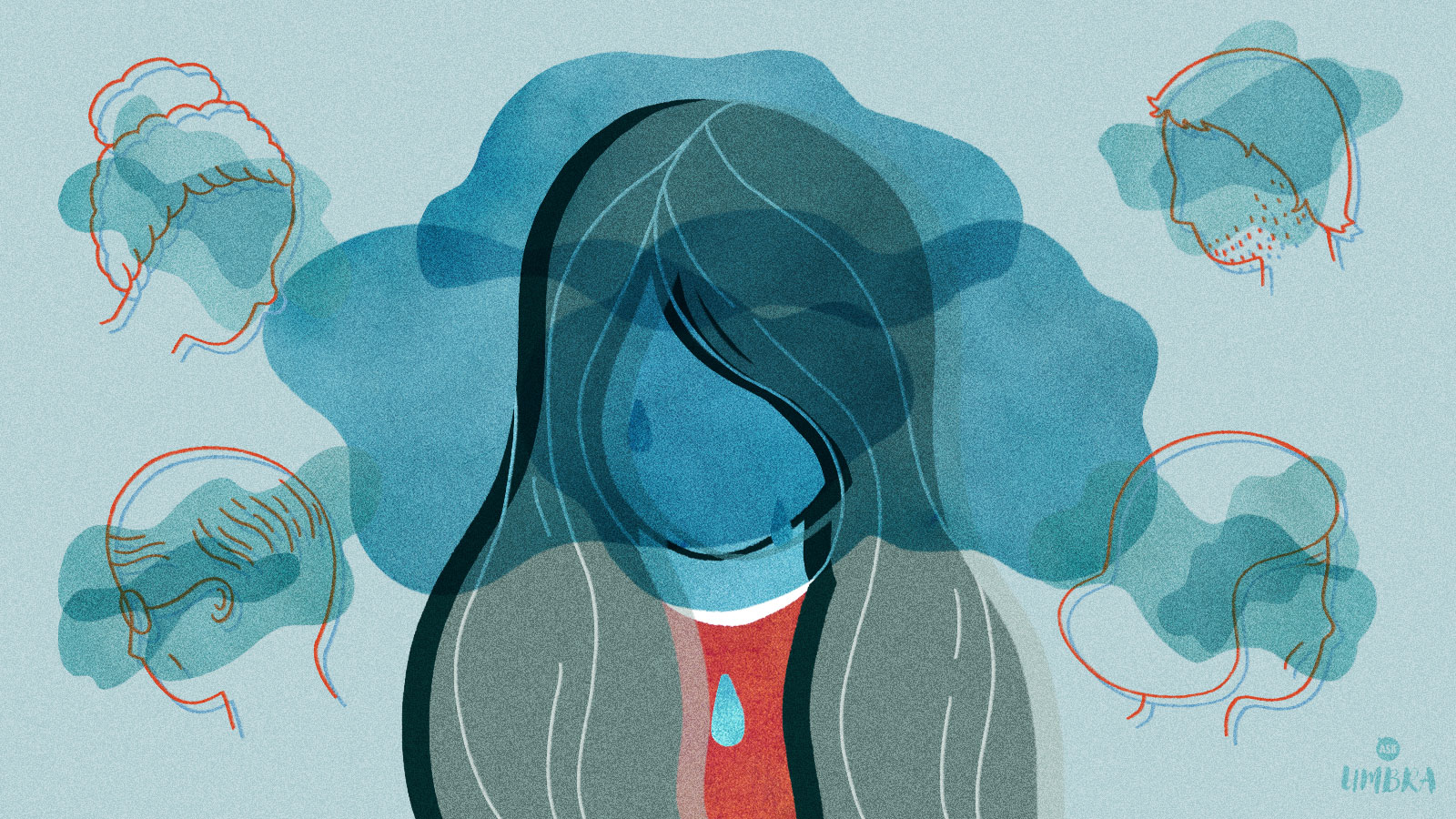Q. Dear Umbra,
How can I get others out of a funk if I am deep in one too?
–Sorry, Also Down
A. Dear SAD,
The pressure you are putting on yourself to be a joy-dispensing pandemic Tinkerbell is deeply ingrained in our culture: American social graces are all about projecting a “friendly and upbeat” vibe — even though that feels so definitively disingenuous at this moment that it’s hard to keep up.
And you’re definitely onto something. Humans take cues from each other: It’s basically how society functions. We are wired to change our behavior, mannerisms, way of dress, and even beliefs based on who we spend time with; it’s a biological survival mechanism. So why not try to influence the people around you to be … happier?
Well, speaking of matters of our survival, there’s been a great deal of psychological research about what gets people to start taking on pro-climate or pro-environment behaviors, and yes, it generally comes down to following the lead of others. (Most people do not want to live out a Green Day song!) For example, people are more likely to consider buying solar panels if they see their neighbors installing them on rooftops. If you assume that everyone else is adopting a higher standard of behavior, you don’t want to be left out.
But you’re not asking about peer pressuring your pals into biking to work, are you? You want to spread happiness by example. And so I went looking into that psychological literature to see if there were any clues about how to change the outlooks of others, or at the very least their moods.
I came across a review about an economics concept called “intrinsic altruism.” It’s the idea that people are driven to do good deeds by two forces: a genuine desire to improve society, and the pleasurable feeling that comes from doing a good thing. I would argue that your desire to lift up your friends likely comes from the same place: You want more happiness in the world (an indisputably good thing!) and you want to make your friends happy (who doesn’t enjoy that!).
You might believe that the best way to bring that joy to your friends is to model it yourself. But this, I would argue, is why you shouldn’t look for emotional lessons in economics.
Let’s start with order of operations. You can’t take care of anyone until you take care of yourself first. There are so many iterations of that general wisdom: Don’t put anyone else’s oxygen mask on before you tend to your own (remember airplanes?); you can’t properly love anyone until you learn to love yourself; do not offer to carry someone if you have slippery shoes! The idea is, you need a strong emotional foundation before inviting someone to lean on you, because otherwise both of you will collapse in a heap.
And yes, we all know at least one eternally giving person — someone who always seems to put others first, who is unfailingly generous, who is always kind of sparkling and smiling and has great hair and skin — whose goodness makes you feel maddeningly inadequate. I recommend muting this person on social media immediately. They are an outlier (or maybe just a liar)! Normal people are at least a little bit sad right now, and for good reason: It has been a full year (!) of a global pandemic and it has been so much worse than anyone who is not a die-hard pessimist or a psychic could have imagined at the start.
One thing you can say for this pandemic: It’s forced a lot of people to be very aware of their feelings, whether they are provoked by the obnoxious social media presence of a COVID-19-oblivious friend or the grating monotony of lockdown life. Even under normal circumstances, anxious ruminations are always there, percolating under the surface of our psyche. But we usually have tried and true coping mechanisms (travel! Socializing! Team sports!) that help relieve them — or at the very least, distract us from them.
But the realities of the ongoing pandemic have cut off access to many of those activities, and those feelings are now surging up. Anxiety and depression, those unwieldy beasts, can show up in all sorts of very physical, day-ruining ways: breathing problems, acne, hair loss, physical pain, insomnia, oversleeping, undereating, overeating, you name it! But one under-recognized side effect of overwhelming, societal stress? The toll it takes on our interpersonal relationships.
Whether you’re talking about COVID-19 or climate or another source of intense, collective stress, shared anxiety means no one is particularly well-equipped to support anyone else. So, intrinsic altruism aside, how are we supposed to save our loved ones when we are simultaneously struggling to control our own sadness and anger?
Well, perhaps total salvation is not the goal. At least, not a realistic one.
Pretending to be jolly when most people are miserable is pretty much the crux of why social media is bad for our emotional health; your loved ones will just think: What has she figured out that I haven’t? Why don’t I feel like that? On the one hand, there is something to be said for all being in the funk together. But there’s a reason those damn social media influencers are always hooting and hollering about positive vibes; it is detrimental to your personal outlook to be too surrounded by negative people.
Which is why I suggest this middle ground: First, acknowledge the awfulness. Your friends are likely not looking to you to lift them up, because that is actually kind of exhausting when your heart, mind, and whole body feel enormously heavy. They want someone to commiserate! They want someone to validate their outlook on the world! It sounds like you can do this without any disingenuousness whatsoever. You’re sad, I’m sad, we’re all sad — let’s talk about it! And once you’ve done that, stop doomscrolling and allow yourself to dream of better things and better days to come!
This cycle of despair and hope also powers the engine of change. For example, we recently had a very promising week on climate policy. But the whole reason that we were able to get to that point is that even in the heart of darkness — the whole Trump administration — lots and lots of people acknowledged the awfulness of the situation, imagined a better alternative, and eventually got together to organize for a change. Sure, there’s lots of work still to do, but no one had to be a perfect model of environmental virtue to get this far. That is not a prerequisite for progress.
Still, you might not yet be in the “get it together” stage for your particular brand of blues, and that’s OK. Trust that the people you care about also care about you. They do not expect you to be a superhuman beacon of positivity. They want you to be honest, and to be kind to yourself, and so do I.
Lovingly,
Umbra




